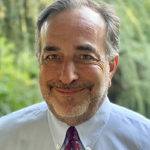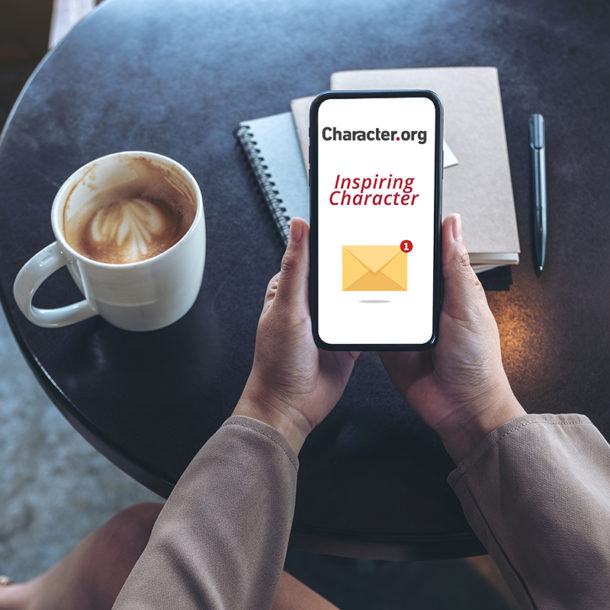Note to reader: My blog posts are written to shed light on important character-related topics and themes. I welcome your thoughts on the post below. I’m eager to learn.
Several days ago, I received an email from someone who served a long time in the military. He knew I had recently been in Israel, and he wanted to know if I was okay. And then he wrote: “Unfortunately, there are people who choose an evil path.”
The phrase “evil path” fired up my neurons. I immediately asked myself: Should parents use the term “evil” when talking to their children about the recent events in Israel and Gaza? Should teachers?
Days later, I am still wrestling with these thorny questions.
One side of me says yes. For example, parents and teachers should use the word evil when talking to their children and students about the Holocaust or the recent events in Israel.
Yet there is another part of me that says no. My fear is that kids are already predisposed to see everything through the binary lens of good and evil. Reared on Marvel movies, too many young people see evil in all authority figures and institutions. And let’s not forget that we already live in a world where politicians use the term evil to describe those who think differently than they do.
There is also the theology of evil. In my own Jewish tradition, the term yetzer hara refers to the heart’s inclination to do evil. Sin and evil are prevalent as well in the Christian tradition, where children learn that Satan is real and doing what he can to encourage evil in the world. The Qur’an also has numerous passages that explain the reality of evil within the context of God’s goodness.
In fact, when people ask me to define what I mean by character, my short response always includes the phrase goodness in action. However, if someone ever asks me what the opposite of goodness is, I wouldn’t say evil. Rather, I’d use the word “bad.”
But does the word “bad” sufficiently describe what recently occurred in Israel, or the spate of mass shootings in our nation? Do I really think that lynching and the brutality of slavery was just bad? That’s why the email from my friend touched me so deeply. Perhaps it’s time for me to accept that some actions are not just bad, but downright evil.
But then I hear the counterpoint voices drumming inside my head. One voice argues that mass murderers are severely ill, crying for someone’s unconditional love. Or that these men (and yes, almost all mass murderers are men) are battling a combination of nihilism, deranged anger, or the need for notoriety. Shouldn’t we show compassion, even for a mass murderer?
Another voice inside me argues that we are biologically wired to protect members of our in-group. We are social animals, and therefore loyalty trumps any ethical principle, especially in places like the Middle East where both the Israelis and Palestinians of all ages are bombarded by “us versus them” cues and reminders. People aren’t evil, suggests this voice, rather it’s the social structures we inhabit (family, faith, nation) that ultimately determine our actions. The renowned Stanford biologist and neuroscientist Robert Sapolsky has just published a book that argues none of us have free will.
Finally, I hear the voice that I simply do not have sufficient knowledge to know whether a particular act is evil. Interestingly, this voice is prevalent throughout websites where experts are being asked to explain how parents should talk to their children about the Israel-Hamas war. For example, Parent Magazine Online didn’t mention the word evil once, nor did a CBS article or NPR. One article ended this way: “Children might ask challenging questions, such as who is right or wrong in the conflict, and that it’s okay for parents to admit they don’t have the answers.”
Perhaps this is why my mom thought I would practice law. My mind is wired to see both sides of a conflict (or argument).
But I don’t practice law; instead, I became a character educator. I’ve spent much of my professional career encouraging schools to equip young people of all ages with the skills to discern right from wrong.
Killing innocent people is wrong. Rape is wrong.
While I may intellectually understand the various reasons behind the violence, these are evil acts.
Our mission, as parents and educators, is to affirm and reinforce in our homes and schools a set of core values and universal principles that transcend religious, cultural, political, or ethnic differences. We cannot condone violence against unarmed people, even if it may be for a just cause. We cannot explain away evil. Ever.






